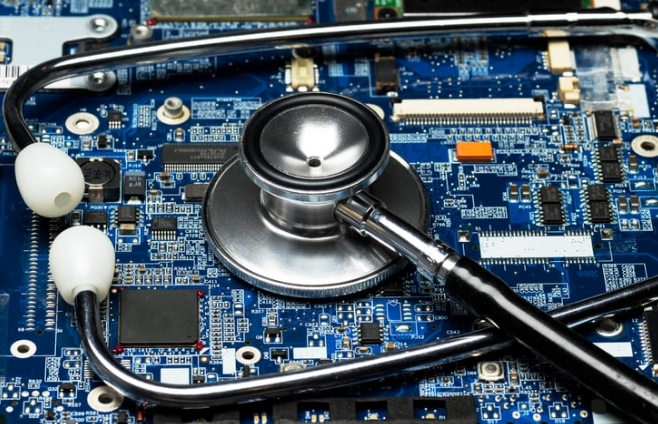When it comes to medical devices, precision and quality are of utmost importance. Circuit card assembly plays a crucial role in ensuring that these devices function accurately and reliably. From diagnostic equipment to life-saving devices, the circuit boards within medical devices must meet strict standards to ensure patient safety and effective treatment. In this blog post, we will explore the significance of precision and quality in circuit card assembly for medical devices, and how this meticulous process contributes to the overall success of healthcare technology.

Circuit card assembly plays a critical role in the functionality and reliability of medical devices. In the realm of healthcare, precision and quality are paramount, and circuit card assembly is no exception. These assemblies are the backbone of medical devices, serving as the platform on which crucial components are mounted and interconnected. The intricate layout and precise placement of electronic components on circuit boards ensure the proper functioning of medical devices, such as patient monitors, diagnostic equipment, and surgical tools.
The design and assembly of circuit cards for medical devices require strict adherence to industry standards and regulations to guarantee safety, accuracy, and reliability. Precise soldering techniques, component placement, and quality control measures are essential to ensure that the assembled circuit boards meet the stringent requirements of the medical field. Additionally, factors like signal integrity, thermal management, and electromagnetic compatibility are carefully considered during the assembly process to maintain the performance and longevity of the medical devices.
Ultimately, the role of circuit card assembly in medical devices cannot be overstated. It is the foundation upon which innovative medical technologies are built, enabling healthcare professionals to deliver accurate diagnoses, monitor vital signs, and perform life-saving procedures with confidence and precision. The quality and precision of circuit card assembly directly impact the performance, safety, and overall effectiveness of medical devices, making it a critical component in the advancement of modern healthcare.
Precision in circuit card assembly is absolutely crucial, especially when it comes to medical devices. These devices are relied upon to deliver accurate and timely information that can be critical in saving lives. Any slight error or mistake in the assembly process can lead to malfunctions, inaccuracies, and potentially catastrophic consequences. This is why precision is paramount when it comes to manufacturing circuit cards for medical devices.
Each component on a circuit card must be placed with utmost accuracy to ensure proper connectivity and functionality. Precision in soldering is also essential to guarantee strong and reliable electrical connections. Additionally, the quality of the materials used in the assembly process must meet the highest standards to ensure the longevity and reliability of the medical device.
Furthermore, precision in circuit card assembly plays a significant role in the overall performance and efficiency of the medical device. A well-assembled circuit card can enhance the device's functionality, accuracy, and response time, ultimately leading to improved patient outcomes and safety.
In the medical field, where precision and quality are non-negotiable, investing in high-quality circuit card assembly is essential to ensure the reliability and effectiveness of medical devices that healthcare professionals and patients depend on.
Ensuring quality standards in medical device manufacturing is paramount when it comes to circuit card assembly for medical devices. The precision and quality of these components can directly impact the effectiveness and safety of the medical devices they power. To uphold stringent quality standards, manufacturers must adhere to industry regulations and certifications specific to medical device production. This includes complying with standards such as ISO 13485 and ensuring that all components meet the necessary regulatory requirements set forth by organizations like the FDA.
Furthermore, implementing robust quality control processes throughout the manufacturing process is crucial. This involves meticulous inspection, testing, and validation procedures to guarantee that each circuit card assembly meets the highest quality standards. By employing advanced testing techniques, such as automated optical inspection (AOI) and functional testing, manufacturers can identify any defects or issues early on and rectify them promptly.
Moreover, maintaining a controlled and sterile environment during the assembly process is essential for medical device manufacturing. This helps prevent contamination and ensures the integrity of the circuit card assembly. Additionally, employing skilled technicians and engineers who are trained in medical device manufacturing processes can further enhance quality control and precision in circuit card assembly.
Ultimately, by prioritizing quality standards and precision in circuit card assembly for medical devices, manufacturers can uphold the reliability, accuracy, and safety of these critical components, contributing to the overall effectiveness and performance of medical devices used in healthcare settings.
The precision and quality of circuit card assembly play a crucial role in ensuring patient safety and advancing healthcare technology. In the realm of medical devices, where accuracy and reliability are paramount, the quality of circuit card assembly directly impacts the performance and functionality of these devices. A flawlessly assembled circuit card can contribute to the accurate and timely delivery of critical medical data, facilitate precise diagnostic measurements, and enable life-saving interventions. On the other hand, substandard assembly practices can introduce errors, malfunctions, or failures that jeopardize patient safety and compromise the effectiveness of healthcare technology.
Furthermore, the intricate nature of medical devices necessitates stringent regulatory standards and compliance requirements. Proper circuit card assembly practices are essential to meet these standards and ensure that medical devices adhere to strict quality control measures. By upholding high standards of precision and quality in circuit card assembly, manufacturers can enhance the overall reliability and integrity of medical devices, instilling confidence in healthcare professionals and patients alike. Ultimately, the impact of circuit card assembly on patient safety and healthcare technology underscores the critical importance of prioritizing precision and quality in the manufacturing process.